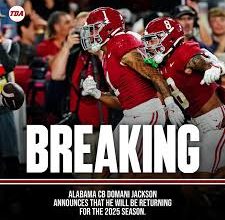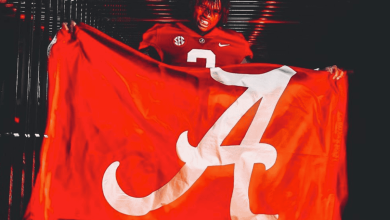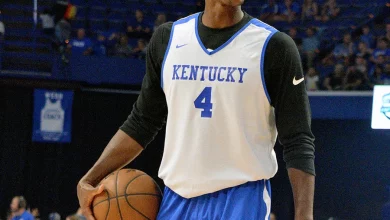Quinn Ewers of Texas is faced with an NFL draft conundrum. He can make more money in college football in 2025

Quinn Ewers, the Texas Longhorns’ star quarterback, is at a crucial crossroads in his career. As one of the most highly-touted young quarterbacks in college football, he is now faced with a significant dilemma: should he enter the 2025 NFL Draft or return for another season of college football, potentially earning more money through the burgeoning world of Name, Image, and Likeness (NIL) deals? This conundrum is representative of a new era in college football, where financial opportunities in the amateur ranks have expanded dramatically, giving players like Ewers more choices than ever before.
Ewers’ situation highlights the evolving dynamics of college football in the NIL era, where the decision to turn professional is not purely about pursuing a career in the NFL. For some, like Ewers, it’s now about weighing the immediate financial advantages of staying in college against the long-term potential of the NFL.
Quinn Ewers: A Rising Star in College Football
Ewers, who began his college football career with a high-profile transfer to Texas from Ohio State, has showcased tremendous talent. As a 5-star recruit, Ewers’ arrival in Austin was met with sky-high expectations. His arm strength, ability to make all the necessary throws, and innate football IQ were seen as elite attributes that could eventually make him a top NFL draft pick.
In his time at Texas, Ewers has demonstrated a blend of potential and growth. Although his development has had some ups and downs, including some injuries and moments of inconsistency, the flashes of brilliance have been enough to garner significant attention. Texas football, long searching for stability at quarterback, has found in Ewers a player who could be the key to its revival in the Big 12 and beyond.
Despite facing fierce competition within the conference, Ewers has emerged as one of the top quarterbacks in college football. The Longhorns’ offense has become more dynamic under his leadership, and his statistics reflect a player capable of taking his team to new heights. As his college career progresses, it’s clear that NFL scouts are keeping a close eye on him, and many have already projected him as a potential first-round pick in the 2025 NFL Draft.
The NFL Draft and What It Means for Ewers
The NFL Draft is the ultimate destination for most college football players, especially those who are considered top-tier talent. A first-round selection would guarantee Ewers a lucrative rookie contract, with the possibility of endorsement deals and future wealth beyond that. However, the road to the NFL is fraught with risks. Injuries, underperformance, and misfortune could quickly derail a promising career. While many players have aspirations of becoming professional athletes, the uncertainty of the draft can be intimidating.
Ewers, like any talented young quarterback, must weigh the pros and cons of entering the draft. The allure of professional football and the chance to secure a long-term career in the NFL is tempting, but it comes with a set of challenges. His performance in the upcoming season could be a decisive factor in whether he is selected in the first round or falls to a later pick, which would affect his long-term financial prospects.
For a player like Ewers, entering the draft means putting his future in the hands of NFL scouts and team executives. This can be a daunting proposition, especially when considering the current state of the league, where quarterbacks are constantly under intense scrutiny. Some quarterbacks fail to meet expectations at the next level, while others take time to develop into stars. For Ewers, the question isn’t just about his talent, but also about his readiness to make the leap from college football to the professional ranks.
The New Financial Landscape: NIL and Its Impact on College Football
Enter Name, Image, and Likeness (NIL), the game-changing rule that allows college athletes to profit off their personal brand while still playing in the NCAA. The NIL landscape has completely shifted the financial equation for college athletes, particularly in high-profile sports like football and basketball. With NIL, players can sign endorsement deals, promote products on social media, and earn substantial sums of money while still maintaining their eligibility in college sports.
For Ewers, the opportunity to capitalize on his image, name, and likeness is extremely appealing. As a high-profile quarterback for a Texas program that is set to join the SEC in 2024, he has the potential to build a lucrative brand. Texas has a massive fanbase and a long history of success in football, and as a prominent player in the Big 12, Ewers is positioned to become a household name across the country.
Given his position as one of the top quarterbacks in college football, Ewers has the potential to secure significant NIL deals. These could include partnerships with major brands, local endorsements, and social media sponsorships that could provide him with more money than he would make in the early stages of an NFL career. While NFL rookie contracts can be substantial, they are often not as lucrative as those secured through high-profile NIL deals, especially for players at the top of their game.
For Ewers, the decision becomes one of balancing his potential in the NFL with the opportunities available in college football. If he stays in school for another season, he could continue to build his brand and earn significant money while further developing his skills. Additionally, playing another year of college football could give him the chance to improve his draft stock, ensuring a more favorable position in the NFL Draft when he finally decides to leave.
The NFL Rookie Contract vs. NIL Earnings
One of the primary questions Ewers must answer is whether the guaranteed money he would earn as an NFL rookie outweighs the potential NIL earnings he could receive by staying in college. To give a sense of the numbers involved, let’s compare the two options.
A first-round pick in the 2025 NFL Draft is expected to receive a substantial contract. According to the rookie wage scale, the first overall pick in the 2025 NFL Draft could sign a contract worth approximately $40 million over four years, with a significant portion guaranteed upfront. The value of a contract will fluctuate depending on the team that selects Ewers and his draft position, but there is little question that a top-tier selection will result in millions of dollars.
However, NIL offers the opportunity for players to significantly boost their earnings while still playing in college. Top college athletes in football can earn millions annually through NIL deals. For example, Texas quarterbacks have been known to earn between $1 million to $3 million in NIL deals, depending on their profile and marketability. Ewers, as one of the most marketable players in college football, has the potential to earn even more in NIL deals.
If Ewers can secure NIL contracts worth several million dollars per year, the financial difference between staying in college or entering the NFL could be significant. While the long-term potential of the NFL is enticing, the short-term financial rewards of college football could provide a solid financial foundation before making the jump to the professional ranks.
Ewers’ Decision: More Than Just Money
While money will undoubtedly be a key factor in Quinn Ewers’ decision, the choice of whether to stay in college or enter the NFL is about more than just finances. Ewers has shown flashes of brilliance, but there are still areas of his game that need refinement before he is ready for the NFL. Another year in college could provide him with the opportunity to hone his skills, work with coaches to improve his mechanics, and develop a better understanding of the game.
Furthermore, staying in college could allow Ewers to lead the Texas Longhorns to greater success, potentially bringing home a national championship. The chance to leave a legacy at Texas, cementing his place in the program’s history, could be a driving factor in his decision to stay.
The NFL, on the other hand, offers the opportunity to compete at the highest level, playing with and against the best athletes in the world. For a player like Ewers, the NFL’s challenge and prestige could be a powerful motivator.









